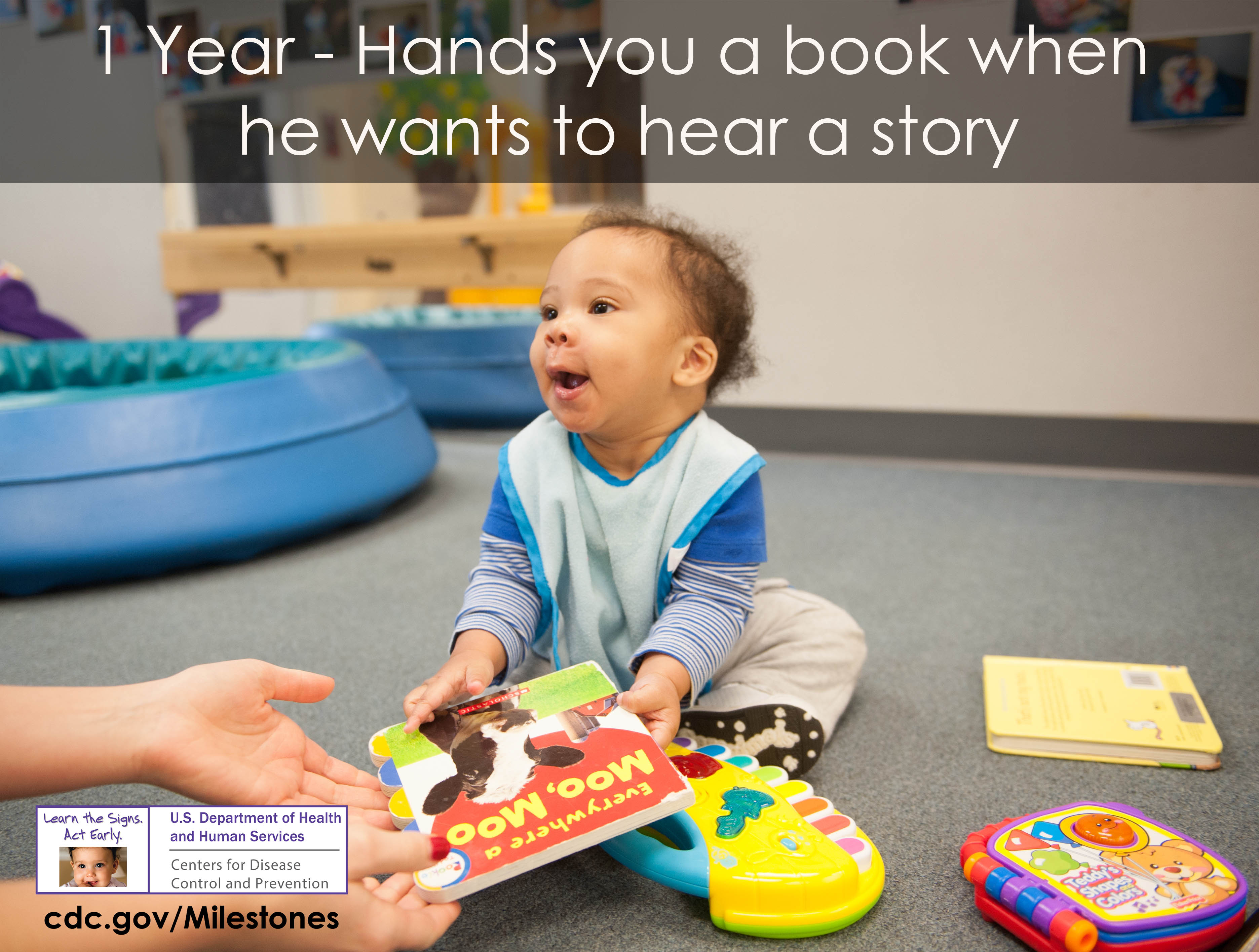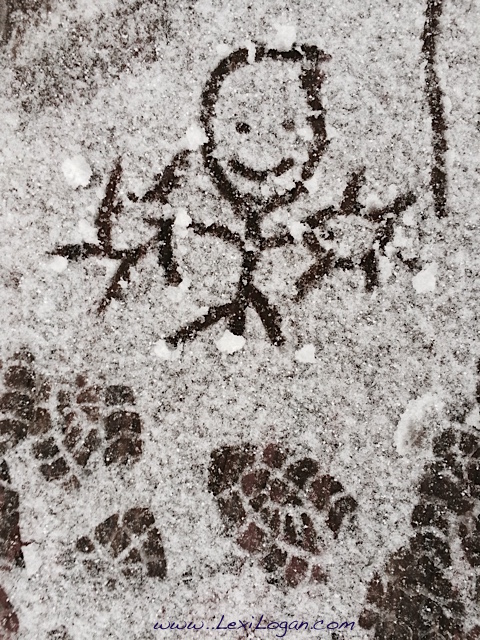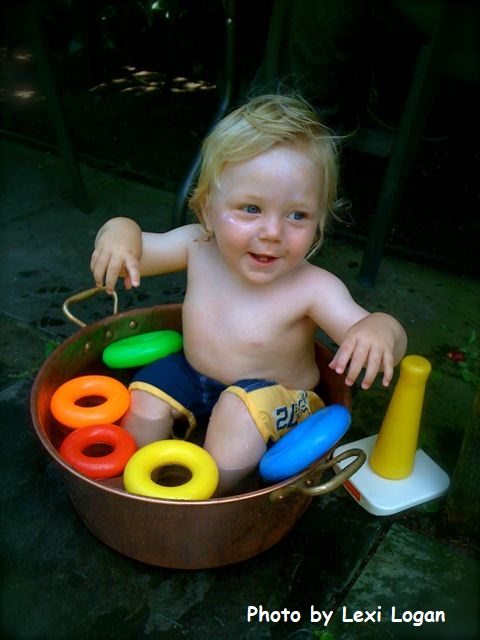 When your baby turns one, you’ll realize he has a much stronger will. My oldest threw his first tantrum the day he turned one. At first, we puzzled: why was he suddenly lying face down on the kitchen floor? The indignant crying that followed clued us to his anger. “Oh, it’s a tantrum,” my husband and I laughed, relieved.
When your baby turns one, you’ll realize he has a much stronger will. My oldest threw his first tantrum the day he turned one. At first, we puzzled: why was he suddenly lying face down on the kitchen floor? The indignant crying that followed clued us to his anger. “Oh, it’s a tantrum,” my husband and I laughed, relieved.
Parenting one-year-olds requires the recognition that your child innately desires to become independent of you. Eat, drink, sleep, pee, poop: eventually your child will learn to control these basics of life by himself. We want our children to feed themselves, go to sleep when they feel tired, and pee and poop on the potty. Of course, there’s more to life such as playing, forming relationships, succeeding in school, etc, but we all need the basics. The challenge comes in recognizing when to allow your child more independence and when to reinforce your authority.
Here’s the mantra: Parents provide unconditional love while they simultaneously make rules, enforce rules, and decide when rules need to be changed. Parents are the safety officers and provide food, clothing, and a safe place to sleep. Parents are teachers. Children are the sponges and the experimenters. Here are concrete examples of how to provide loving guidance:
Eating: The rules for parents are to provide healthy food choices, calm mealtimes, and to enforce sitting during meals. The child must sit to eat. Walking while eating poses a choking hazard. Children decide how much, if any, food they will eat. They choose if they eat only the chicken or only the peas and strawberries. They decide how much of their water or milk they drink. By age one, they should be feeding themselves part or ideally all of their meal. By 18 months they should be able to use a spoon or fork for part of their meal.
If, however, parents continue to completely spoon feed their children, cajole their children into eating “just one more bite,” insist that their child can’t have strawberries until they eat their chicken, or bribe their children by dangling a cookie as a reward for eating dinner, then the child gets the message that independence is undesirable. They will learn to ignore their internal sensations of hunger and fullness.
For perspective, remember that newborns eat frequently and enthusiastically because they gain an ounce per day on average, or one pound every 2-3 weeks. A typical one-year-old gains about 5 pounds during his entire second year, or one pound every 2-3 months. Normal, healthy toddlers do not always eat every meal of every day, nor do they finish all meals. Just provide the healthy food, sit back, and enjoy meal time with your toddler and the rest of the family.
A one-year-old child will throw food off of his high chair tray to see how you react. Do you laugh? Do you shout? Do you do a funny dance to try to get him to eat his food? Then he will continue to refuse to eat and throw the food instead. If you say blandly,” I see you are full. Here, let’s get you down so you can play,” then he will do one of two things:
1) He will go play. He was not hungry in the first place.
2) He will think twice about throwing food in the future because whenever he throws food, you put him down to play. He will learn to eat the food when he feels hungry instead of throwing it.
Sleep: The rule is that parents decide on reasonable bedtimes and naptimes. The toddler decides when he actually falls asleep. Singing to oneself or playing in the crib is fine. Even cries of protest are fine. Check to make sure he hasn’t pooped or knocked his binky out of the crib. After you change the poopy diaper/hand back the binky, LEAVE THE ROOM! Many parents tell me that “he just seems like he wants to play at 2:00am or he seems hungry.” Well, this assessment may be correct, but remember who is boss. Unless your family tradition is to play a game and have a snack every morning at 2:00am, then just say “No, time for sleep now,” and ignore his protests.
Pee/poop: The rule is that parents keep bowel movements soft by offering a healthy diet. The toddler who feels pain when he poops will do his best not to have a bowel movement. Going into potty training a year or two from now with a constipated child can lead to many battles.
Even if your child does not show interest in potty training for another year or two, talk up the advantages of putting pee and poop in the potty as early as age one. Remember, repetition is how kids learn.
Your one-year-old will test your resolve. He is now able to think to himself, “Is this STILL the rule?” or “What will happen if I do this?” That’s why he goes repeatedly to forbidden territory such as the TV or a standing lamp or plug outlet, stops when you say “No no!”, smiles, and proceeds to reach for the forbidden object.
When you feel exasperated by the number of times you need to redirect your toddler, remember that if toddlers learned everything the first time around, they wouldn’t need parenting. Permit your growing child to develop her emerging independence whenever safely possible. Encourage her to feed herself even if that is messier and slower. Allow her to fall asleep in her crib and resist only rocking her to sleep. Everyone deserves to learn how to fall asleep independently. You don’t want to train a future insomniac adult.
And if you are baffled by your child’s running away from you one minute and clinging to you the next, just think how confused your child must feel: she’s driven towards independence on the one hand and on the other hand she knows she’s wholly dependent upon you for basic needs. Above all else, remember the goal of parenthood is to help your child grow into a confident, independent adult… who remembers to call his parents every day to say good night… ok, at least once a week to check in…. ok, keep in touch with those who got him there!
Julie Kardos, MD with Naline Lai, MD
©2012, 2017 Two Peds in a Pod®
In this busy, holiday time of year, you may find yourself dining out frequently with your toddler. Read our post to find hints on avoiding restaurant meltdowns without the use of an iPad or phone!

 When your baby turns one, you’ll realize he has a much stronger will. My oldest threw his first tantrum the day he turned one. At first, we puzzled: why was he suddenly lying face down on the kitchen floor? The indignant crying that followed clued us to his anger. “Oh, it’s a tantrum,” my husband and I laughed, relieved.
When your baby turns one, you’ll realize he has a much stronger will. My oldest threw his first tantrum the day he turned one. At first, we puzzled: why was he suddenly lying face down on the kitchen floor? The indignant crying that followed clued us to his anger. “Oh, it’s a tantrum,” my husband and I laughed, relieved. 

 When your baby turns one, you’ll realize he has a much stronger will. My oldest threw his first tantrum the day he turned one. At first, we puzzled: why was he suddenly lying face down on the kitchen floor? The indignant crying that followed clued us to his anger. “Oh, it’s a tantrum,” my husband and I laughed, relieved.
When your baby turns one, you’ll realize he has a much stronger will. My oldest threw his first tantrum the day he turned one. At first, we puzzled: why was he suddenly lying face down on the kitchen floor? The indignant crying that followed clued us to his anger. “Oh, it’s a tantrum,” my husband and I laughed, relieved.